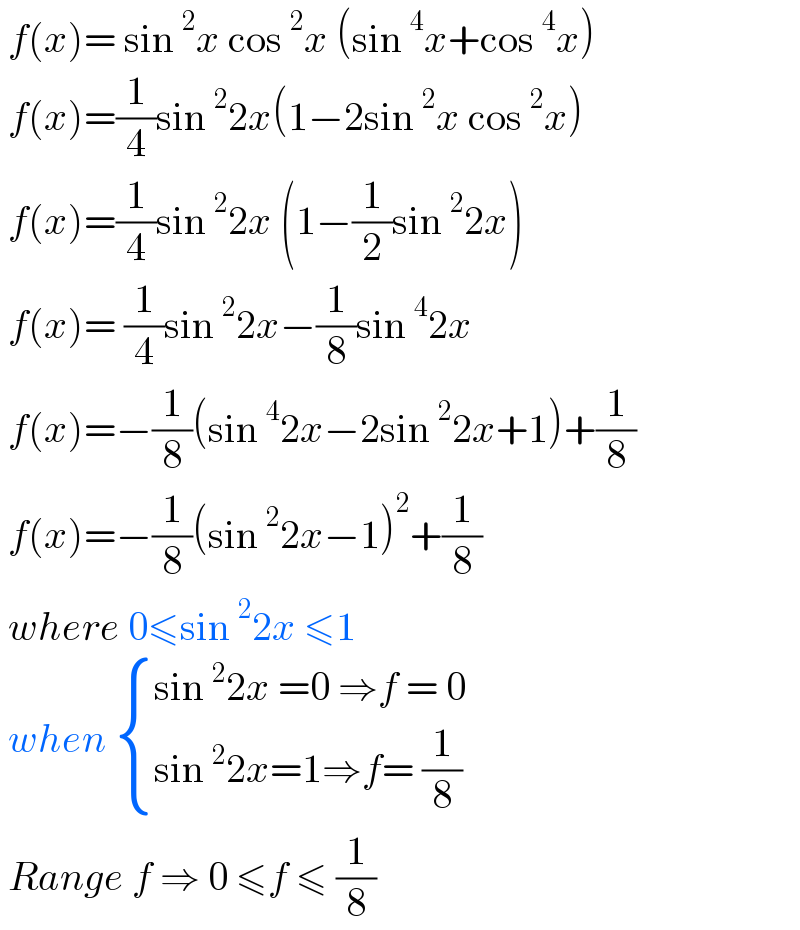
Question and Answers Forum
Question Number 163048 by mnjuly1970 last updated on 03/Jan/22

Answered by mahdipoor last updated on 03/Jan/22
![sin^2 x=m cos^2 x=n ⇒m^′ =−n^′ =2cosx.sinx f ′=(nm^3 +mn^3 ) ′=m′(3nm^2 +n^3 )+n′(3mn^2 +m^3 )= 2cosx.sinx(n^3 −3mn^2 +3m^2 n−m^3 )= sin2x(n−m)^3 = sin2x(cos^2 x−sin^2 x)^3 = sin2x.cos^3 2x=0 ⇒x=((kπ)/4)+(π/2) { ((sin(((kπ)/4)+(π/2))=cos(((kπ)/4)))),((cos(((kπ)/4)+(π/2))=−sin(((kπ)/2)))) :} f(((kπ)/4)+(π/2))=(1/4)sin^2 (((kπ)/2))(sin^4 (((kπ)/4))+cos^4 (((kπ)/4))) = { ((2∣k f=0)),((2∤k f=+(1/8))) :} R_f =[0,0.125]](Q163055.png)
Commented by mnjuly1970 last updated on 03/Jan/22

Answered by tounghoungko last updated on 03/Jan/22

Commented by mnjuly1970 last updated on 03/Jan/22

Answered by abdullahhhhh last updated on 03/Jan/22

Commented by mnjuly1970 last updated on 03/Jan/22

